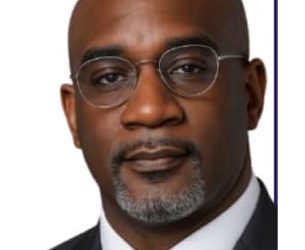A Federal High Court in Abuja on Friday, June 14, made a significant ruling, discharging the executive of Binance Holdings Limited, Tigran Gambaryan, and his fleeing colleague, Nadeem Anjarwalla, from the alleged tax evasion charge preferred against the company by the Federal Inland Revenue Service (FIRS). Justice Emeka Nwite, in a ruling, discharged and struck out Gambaryan and Anjarwalla’s names from the four-count charge after FIRS’ counsel, Moses Ideho, filed a fresh amended charge, leaving the company, Binance listed as the sole defendant.
When the matter came up for hearing on Friday, Gambaryan stepped into the dock.Tonye Krukrubo, SAN, who appeared for Binance (1st defendant), then informed the court that the cryptocurrency firm had just appointed a Nigerian representative Ayodele Omotilewain who was also in court, stood up and announced his name. His appointment as Binance’s representative in Nigeria is a significant development in the case. Idaho confirmed that his office received a notice of appointment of Ayodele Omotilewa as agent and representative of Binance. The FIRS lawyer told the court that following the development, an amended four-count charge was filed on June 13 which lists Binance Holdings Limited as the sole defendant on charges bordeing on tax evasion and failure to register with the FIRS for the purpose of paying all relevant taxes administered by the service. He therefore applied that Omotilewa should enter the docke to take a plea on behalf of the company.
However, Krukrubo, representing Binance, disagreed with Ideho’s application, presenting a compelling argument. The senior lawyer argued that the company’s representative was yet to be served with the fresh amended charge. According to him, Omotilewa was only appearing in court for the first time. “I think my learned friend should confirm whether he has served him or not first. We are not there yet,” he said. He insisted that the prosecution had not served them with the amended charge. Krukrubo said Omotilewa ought not to enter the dock. According to him, he was only appointed for specific purposes; to receive processes. “He is one of us, a legal practitioner,” he said. According to him, the proper thing for the prosecution to do was to address the court on the charge he intended to substitute.
C.J. Caleb, who appeared for Gambaryan (2nd defendant), aligned himself with Krukrubo’s submission. According to him, our jurisprudence for criminal trial of a corporation as it stands today does not contemplate that a corporation or its representative should be in the dock. “More importantly, the ACJA (Administration of Criminal Justice) Act, particularly Part 47, did not leave us in doubt on how a trial should proceed in respect of a corporation,” he said. He went further to sate that the Act also specified all that is required of a representative in criminal trial, citing Sections 478 , 481, 482 and 483. “So I align with my learner colleague that the representative is enough to be in court but does have to be in the dock,,” he said. However, on the contrary, Ideho in opposition, cited Section 481 of ACJA stating, “If my lord is to look carefully at the provisions of this section and subsection, a representative cannot just sit in the gallery and watch like a spectator how the trial is conducted. He should be in the dock because this is a criminal charge, not a civil matter,” he said but Krukrubo in his reaction, argued that there was nowhere in the section cited by Idaho where it was said that a company’s representative must be in the dock. “Section 481 is written in black and white and it does not say that a representative of a corporation must be in dock. “What he is saying is not contemplated by ACJA,” he said.
Justice Nwite then directed Ideho to make his application to file the amended charge which the defendants’ lawyers did not oppose. Caleb nsubasequently applied that the court should strike out the two earlier charges that listed his client, Gambaryan, as 2nd defendant,.He also applied that Gambaryan should be discharged from the dock and from the proceedings in its entirety and that the earlier order directing that the service of the charge on Binance be done through Gambaryan be vacated, having been in the court record that the company had appointed a representative .
Consequently, Justice Nwite, set aside the earlier order, directing Gambaryan to be served on behalf of the company and discharged him from the dock. This decision, which removes Gambaryan from the proceedings, is a significant development in the case and could have implications for the remaining charges against Binance Holdings Limited. On the controversy whether the Binance representative should be docked or not, the judge ordered the parties to file written addresses to state their arguments. This procedural step indicates that the court is taking the issue seriously and will consider the arguments of both parties before making a decision.
The suit has been adjourned to July 12 for the Defendant to take his plea.















